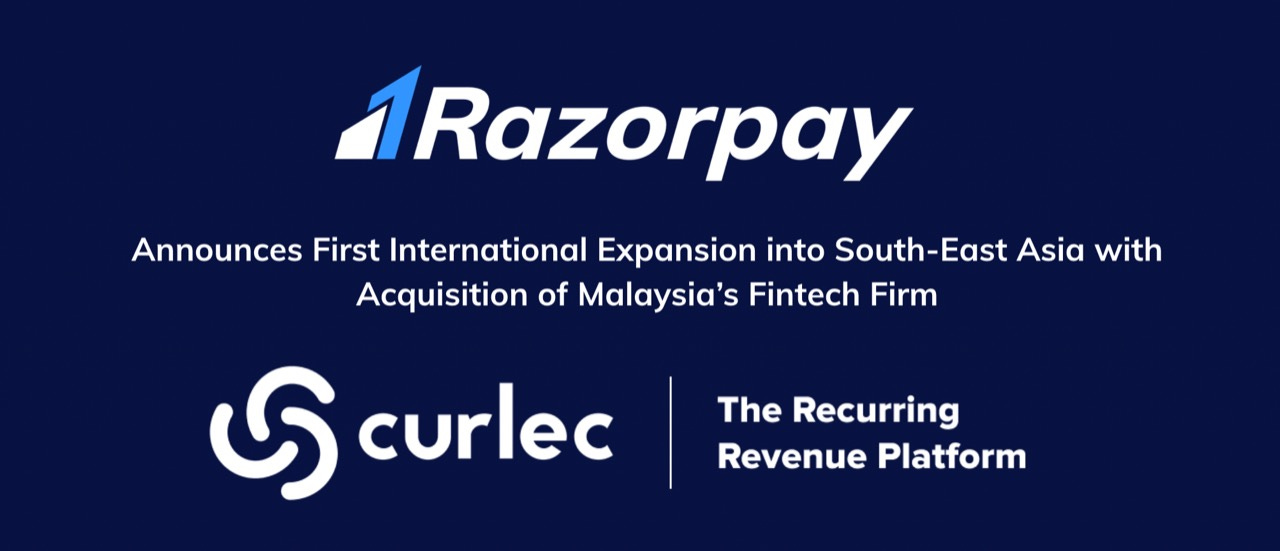Iris Capital Partners: Nurturing Malaysia’s Next High Impact Startups
Welcome back to an all-new Head’s Up. This week, we spoke to Syarina Zakaria, Associate Director at Iris Capital on nurturing Malaysia’s next generation of high impact startups and bridging the gaps in the local startup ecosystem. She also shares on venture debt structures, concerns founders may have and why the ecosystem for startups in Malaysia is perfect for disruption.
But just before you go on to read our chat with Syarina, we have a couple of news and upcoming events to share.
If you missed our recent interview with Task2Bid, click here. Till our next issue, stay safe and stay healthy!
Announcements
Winacore Capital and FMT News are looking to invest in high-potential ventures/startups. To better support Malaysian entrepreneurs and startups, we are coming together to launch an accelerator program.
Interested founders can reach out to us via accelerator@freemalaysiatoday.com
Open to all SMEs and growth-stage enterprises, the upcoming ECF Accelerator Programme is for those who are interested in using equity crowdfunding (ECF) to scale and grow. Learn how to be "Investor-Ready" from industry experts like Crowe & Zico, who will provide you with the resources you need to launch a successful ECF campaign.
Registration closes on 23 Feb 2022. Cohort 1 begins on 1st March 2022.
Register at https://lnkd.in/euK_eSJV
FWD x 1337 Ventures Alpha Startups Pre-Accelerator for Insurtech - Cohort 3
What's in it for participants:
The top 2 teams will receive an investment of RM150K funding each
2. Mentoring
3. Office hours with regulators, industry leaders, corporates & networking with angel investors
4. Digital perks such as AWS cloud credits, co-working space, airtable credits etcc
Programme info: https://fwdstartupstudio.com/pre-accelerator
To register: https://fwdstartupstudio.com/application
The Accelerator begins in early April 2022. Registration closes on 27 March 2022.
Interested in expanding your business to Thailand and being a part of the country's rapidly changing startup ecosystem?
Take advantage of the Corporate Connect Sessions to expand your business and establish collaboration and connections with Thai corporations. Register now: https://bit.ly/3HQrqCp
For more info, visit https://bit.ly/3sysxQK
Recent News
Curlec Announces Its Acquisition by Razorpay
Razorpay, India’s leading Payments and Banking Platform for Businesses, today announced its first international expansion into South-East Asia with the acquisition of a majority stake in Curlec, a leading Malaysian fintech firm, for an undisclosed amount.
Curlec is a Kuala Lumpur-based company, building solutions for recurring payments for modern businesses of all sizes. This marks Razorpay’s fourth acquisition overall and its first in international waters, taking one step closer to becoming fintech leader in emerging markets.
Malaysian-based fintech, IIMMPACT announces US$2 million in seed funding by Sequoia India’s Surge
Malaysian-based fintech, IIMMPACT today announced US$2 million in seed funding by Sequoia India’s Surge, a rapid scale-up program for startups in Southeast Asia and India. Iimmpact is Surge’s first startup founded and based in Malaysia.
In 2020, Iimmpact was also announced as a Top 10 Company from ScaleUp Malaysia’s first cohort, which saw the company pivoting their business from a loyalty app to a one-stop payments and data aggregation API.
Iris Capital Partners: Nurturing Malaysia’s Next High Impact Startups
Iris Capital Partners is Malaysia’s first privately led venture that aims to finance high impact startups from Malaysia and the ASEAN region. How would you define high impact startups?
High impact startups bring benefits to more than just their shareholders. For instance, these are companies that are committed to creating more jobs, driving innovation and wealth creation, creating products and markets that did not exist before, as well as generating new networks. Most importantly, these are companies that are committed to nurturing talent and knowledge in the world.
These objectives are aligned with Penjana Kapital’s mission to support Malaysian and Asean startups, particularly for post-pandemic recovery efforts.
What other factors will you consider before choosing to finance a startup?
Aside from a great product or service – because it’s a debt product – we look at companies that are stable, with strong business plans for revenue growth.
Is there a ratio to how many startups are you looking to finance from each country in the region?
Currently our mandate allows for 50% Malaysian and 50% Southeast Asian companies. Key countries we’re looking at in the region include Singapore, Vietnam, and Indonesia.
What are some of the gaps you have identified in the local startup ecosystem? How would you differentiate the startup scene between Malaysia and our neighbours in the region?
The local market is still young and more education on alternative financing options is key in developing the ecosystem. Compared to startups in neighbouring countries, startups in Malaysia are still in fledgling stages and ripe for disruption. We’re seeing emerging trends in the local fintech and agritech spaces and, with the soon anticipated award of digital banking licences, we’re expecting the emergence of more fintech startups.
What more can be done to elevate the startup ecosystem in the country?
This is where venture debt comes in as a complimentary source of alternative financing to complete the funding ecosystem available to startups. Typically, a founder will go the venture equity route but, in the process, ends up giving valuable equity away. Venture debt comes in as a useful tool that can help minimise founders’ equity dilution.
Can you share more about Iris’ partnership with Hanwha Asset Management Co? How did the partnership come about and what do you hope to achieve in the long run?
Our chairman, Dato’ Wan Kamaruzaman Wan Ahmad was introduced to Hanwha Asset Management (HAM) through the VC network in the region. Even before this partnership, HAM already had a presence in SEA as it has partnered other funds before in the region like Golden Gate Ventures and Vertex Ventures in Singapore.
For those who may not be familiar with the concept of venture debt, can you share further details on the structure of it?
If you are going to raise venture capital to build and grow your business, it’s worthwhile to consider using venture debt to complement the equity you raise. Venture debt is a type of loan offered by banks and nonbank lenders that is designed specifically for early-stage, high-growth companies with venture capital backing.
The thing to remember is that venture debt follows equity, it doesn’t replace it. While it’s a new offering in the region, it has been an instrumental tool in the US since the 1980s when it was first introduced. In fact, some 30% of startups in the US have received venture debt.
What are some of the concerns startups may have with regards to venture debts?
Founders usually tend to follow the herd just because “everyone is doing it”. But a startup should weigh their options and decide which is the best for them at the current stage of their business, and stack the option with the most advantages in their corner.
We’re sometimes met with concerns about financing and payment options, but what we’ve most often noticed is that founders were not even aware that venture debt was an option in the market. It’s opened a whole new world to local startup founders.
How will it be able to help them grow? And what stage startups should apply for the financing?
Iris Venture Debt is a fund manager under Dana Pejana Nasional. Penjana Kapital functions as our biggest Limited Partner (LP) and matches funds raised on a one-for- one basis – providing founders with DPN’s support through the Ministry of Finance. Additionally, Hanwha Asset Management is part of one of the largest South Korean conglomerates and has an extensive global venture capital network.
There isn’t a particular stage that startups have to be in to apply for venture debt financing, as long as the company has a strong business plan, robust financials, and a proven management track record, they’re eligible to apply for financing.
Are you eyeing for startups from specific industries or are you open to any?
We are sector and stage agnostic at this juncture.
Edutech and agritech startups have been the focus of many other investors recently. What focus areas do you think have high potential?
Some key sectors that have caught our eye are in consumer, healthcare, edtech, and fintech industries. But again, the ecosystem for startups in Malaysia is perfect for disruption and as long as companies have steady financials and a comprehensive action plan, they’ve got the potential for venture debt.
About Syarina Zakaria
Syarina is an Associate Director at Iris Capital. She leads and structures investment deals for Iris. Prior to joining Iris Capital, Syarina was an institutional equity sales manager and a research analyst at KAF Equities since 2016. She was a contracts and commercial manager at Samudra Oil Services, a subsidiary of Destini Bhd, and part of its corporate strategy team there. Here, she advised on new business formations as well as commercial deals.
Syarina started her career at Hong Leong Asset Management as an economic analyst in 2010. She then joined The Edge Communication as a writer specialising in technology and oil & gas.
She holds a Bachelor of Economics from Kingston University, London.
Whether it’s a feedback or if you would like us to put your story out there, reach out to us via headsupnewsletter@gmail.com











